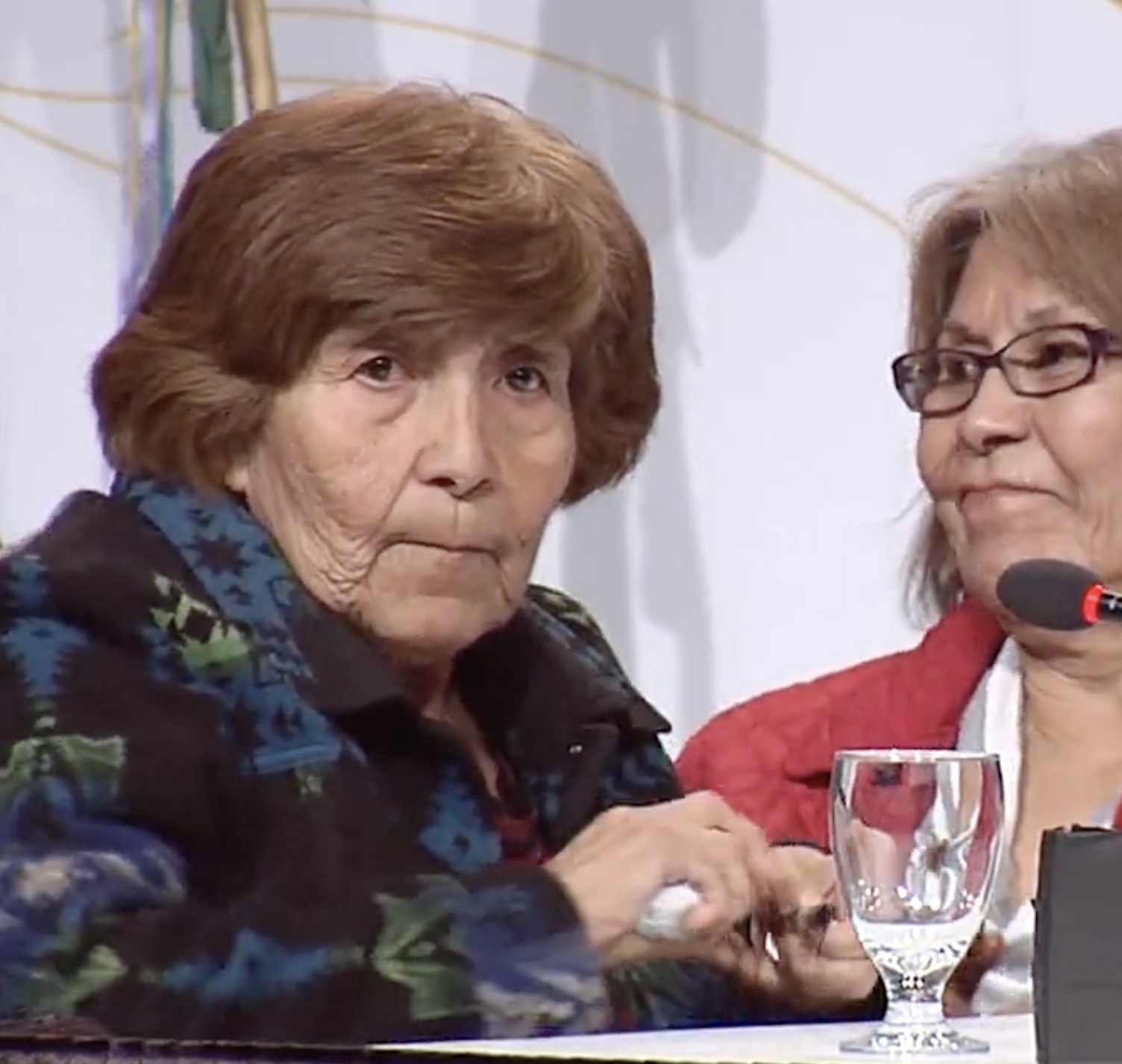Agnes Gendron- That Fateful Day
We grew up, I remember my childhood, it was always loving and caring fun. The siblings played together in winter, summer, didn’t matter, fall. We all were together, until that fateful day we were brought to residential school.
I was seven years old and I left at eleven years old. First day of school was a culture shock to me. I remember we were all brought into the shower room. Everybody had to take a shower and we got out of that room, and I fainted. I just dropped. I don’t remember very much of that first year at school because I was so homesick, I was sick most of that year, and I seen the horrific things that happened to other children there.
I learned to be standing alone at an early age. I’d seen other children’s, their ears bleeding because somebody was pulling on their ears. I’d seen our young men being ridiculed, and laughed at by the people, the masters and the nuns that were looking after them. I saw that and it hurt me, pretty badly.
I must have been about eight years old, nine years old. I saw my sister, she was only six years old. When she went to residential school, she started wetting her bed and they brought these little children into the refectory for breakfast with their wet sheets on their heads. And I hated those people that were looking after them, I could feel the hair on my back standing. Seeing that my little sister with her sad eyes and tears in her eyes, and we couldn’t go up there and comfort her.
I was so thankful that I didn’t have to go back, I was there until grade four. Now we couldn’t talk to our brothers. My brother was on the other side, on the boys’ side. There was very seldom that we ever talked to him, but there was one thing that was happening at that school, at Blue Quills, was the boys had a band, and my brother was in the band, in the cadets. And to this day, I was so proud of him, and the other boys that we’re in there.
– Agnes Gendron
Notes:
Agnes Gendron Testimony. SP203_part08. Shared at Alberta National Event (ABNE) Sharing Panel. March 28, 2014. National Centre for Truth and Reconciliation holds copyright. https://archives.nctr.ca/SP203_part08

